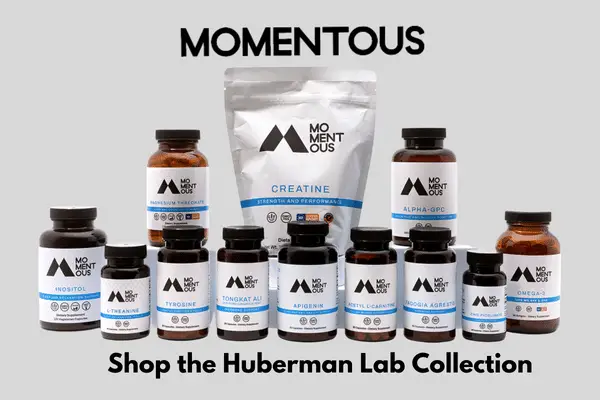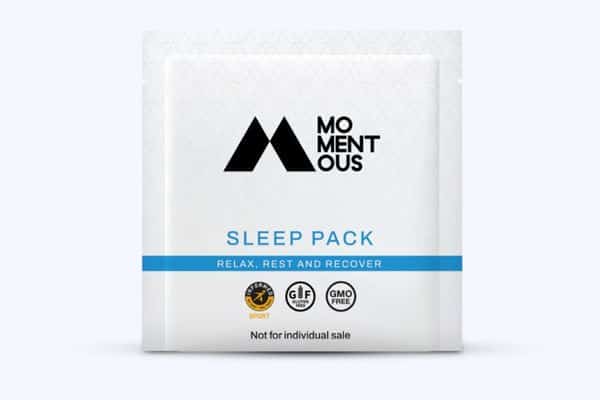When you are wanting to add supplements for brain health, you want advice you can trust. I’ve been following the Huberman Lab podcast for awhile and have been really impressed by Dr Huberman’s ability to translate research into real world applications.
Read on for my summary of his suggestions and how I adjusted my breakfast routine based on his brain health supplement advice.
Dr. Andrew Huberman Supplements for Brain Health
Dr. Andrew Huberman is a professor of Ophthomology and Neurobiology at Stanford University, who discusses science on The Huberman Lab podcast.
I was really excited when The Huberman Lab focused on supplements for brain health. This is because almost everyone has an opinion on this subject.
If you want to improve your overall brain function or are looking to improve cognitive symptoms from a concussion or long-covid you may be interested in supplements.
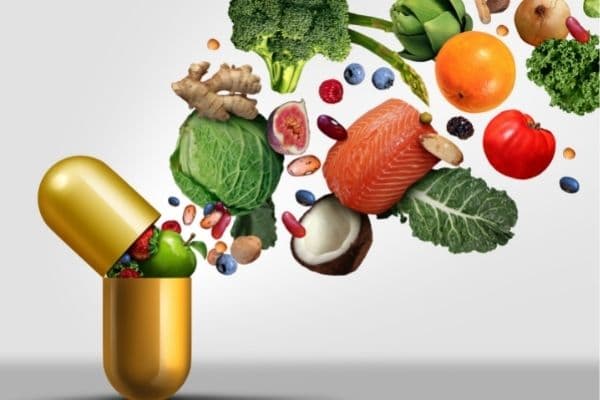
So first things, first. No supplement is going to help if you don’t have the basics down. Quality sleep is the absolute foundation of brain health, so improving sleep should be your first step.
In addition to sleep you can add periods of rest during the day (particularly Non-Sleep Deep Rest protocols) and get bright light exposure. Other pillars of brain health are good social connections, exercise, and nutrition.
But adding supplements for brain health is very interesting, and was covered in one Huberman Lab podcast. There are so many opinions on this subject and I really trust Dr. Huberman’s critical analysis, so I immediately sat down to take notes.
The supplements he discussed are all derived from food, and have multiple studies supporting these supplements as supporting basic brain health.
Supplements are not regulated the same way as medications so it is important to take good quality supplements. The Huberman Lab has partnered with Momentous to design specific supplements bundles that meet Dr. Huberman’s quality standards.
Use the code VASTMIND to get 15% off your order at Momentous.
In this post I’ll go through his suggestions and tell you how I changed my breakfast habits based on his advice.
Huberman Brain Supplements: Hydration and Electrolytes
The brain is mainly composed of fat and water. By understanding this, we can understand how to support this amazing organ.
So, in terms of supplements for brain health, this might not be your first thought but… we need to hydrate our brains! You can read my post on hydration with electrolytes.
I’ve always thought that if you just paid attention to your body, and drank when you were thirsty you would be fine. And then I found out that some people don’t actually feel thirst like they should and I was one of them. Oops.
So – it turns out you can be dehydrated and not realize it, and this is not great for your brain. And when we talk about hydration we mean both water and electrolytes.
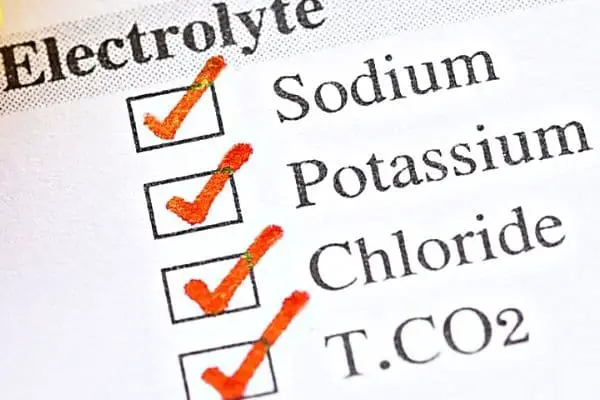
Electrolytes are salts, sodium, magnesium and potassium. These electolytes are literally needed to create brain signals!
Ions of electrolytes are what pass across the junctions in the brain, creating electrical activity which is the communication in the brain.
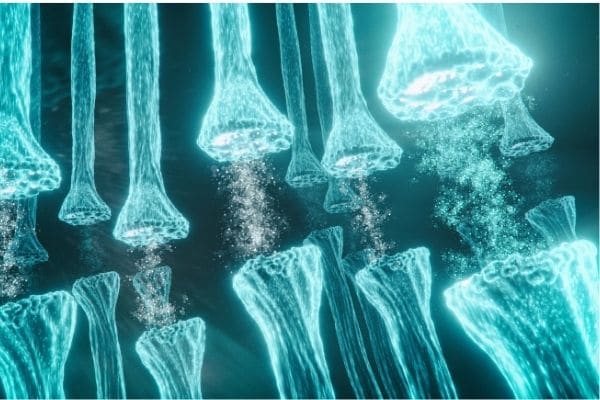
So while our culture has demonized salt (and yes, some people with high blood pressure do need to be careful here, always check with your doctor) we actually do need salt.
Dr. Huberman will often add some salt to his water, and I have begun to do this as well. One easy way to do this is to use electrolyte tablets or powder.
Huberman Lab Brain Supplements: Omega-3 and EPA
Now let’s move on to fats, which provides the integrity for our brains. The external layer of nerve cells is made of fat, and electrolytes crossing this layer is how brain cells communicate.
This outer layer of nerve cells is made of ‘structural fat’, which is not the same as abdominal fat. This structural fat comes from the foods we eat.
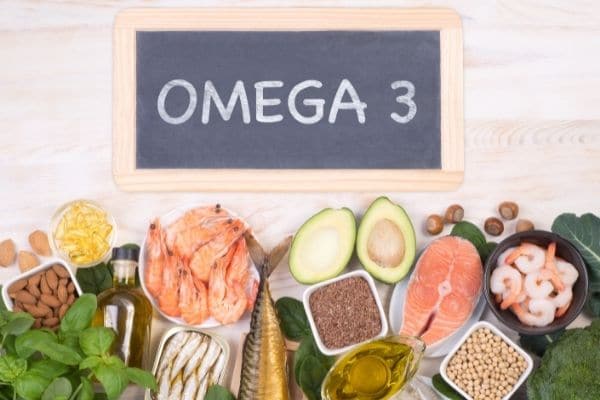
Literally the foods we eat are what allow our bodies to build the brain cells we need to function. So we need to eat essential fatty acids and phospholipids.
These essential fatty acids are Omega-3 and Omega-6 fatty acids which can’t be manufactured in the body. Most people get enough Omega-6 but not enough Omega-3 from their diets.
Fish oil contains two Omega-3s called docosahexaenoic acid (DHA) and eicosapentaenoic acid (EPA). There is a lot of literature on Omega-3 supplementation helping with mood as well as antidepressants, but they can also help with cognition.
It is EPA that you want, which you can get from eating fish, oysters, caviar, chia seeds, soybeans or taking fish oil.
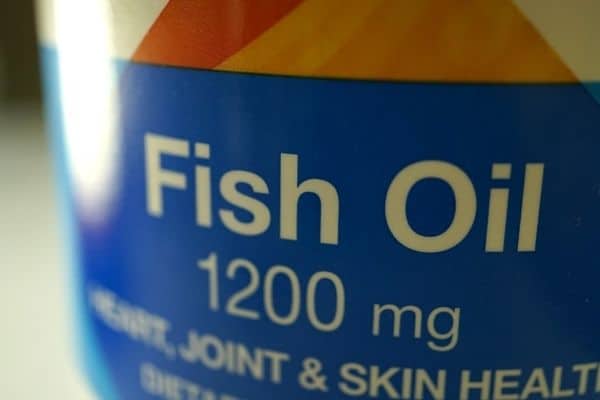
Dr. Huberman recommends taking at least 1.5 g and up to 3 grams of EPA per day. He takes 2 tablespoons of fish oil in liquid form, which is easy and affordable. I find it easiest to get a liquid form of Omega 3 as the pills are really massive, and I find them hard to swallow.
And you can use the code VASTMIND to get a discount of 15% off your order at Momentous.
Or
Huberman Lab Brain Supplements: Phosphatidylserine
Now onto a second brain health supplement, phospatidylserine. Phosphatidylserine is a lipid like compound found in meat and fish and cabbage.
The amount that has been studied is phosphatidylserine 300mg/day and there were modest effects. It improved cognition (3 studies), and reduced cognitive decline (at least 5 studies).
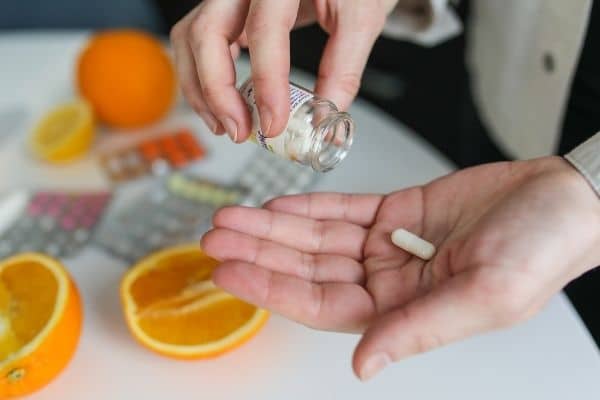
Dr. Huberman does not supplement himself but knows many people who do.
Buy Phosphatidylserine
Huberman Lab Brain Supplements: Choline
The third suggested supplement for the brain is choline, which is a building block for acetylcholine.
Acetylcholine is an important neuromodulator in the brain which tends to enhance the activity of certain neurons and reduce the activity of other ones. You can think of acetylcholine as a conductor in the brain, particularly enhancing the parts of our brain involved in alertness and focus.
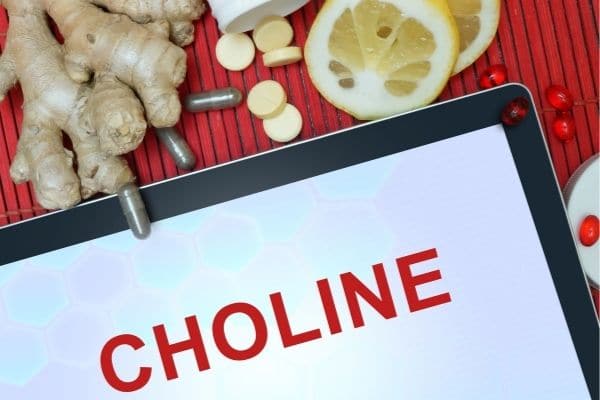
Drugs for Alzheimers work by enhancing amount of acetylcholine available to neurons.
Dr Andrew Huberman feels you should look at getting 1-2g/day and mostly gets his choline from his diet. Egg yolks a good source, but also nuts and seeds. Sometimes he takes 300mg of alpha-GPC (a form of choline) but he finds it stimulating.
And you can use the code VASTMIND to get a discount of 15% off your order at Momentous.
Or
Huberman Lab Brain Supplements: Creatine
Next up are supplements are helpful brain function, but also other parts of the body.
Creatine is a well known supplement, especially for body builders. Creatine brings water into tissues like muscles.
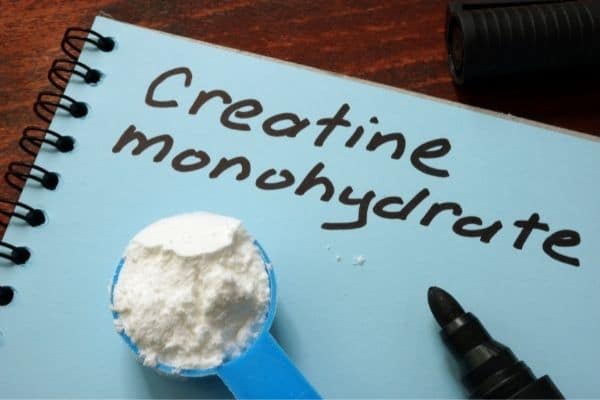
Creatine can be used as fuel source in the brain, and there is a lot of evidence that creatine can help with cognition, and some evidence it can help with mood regulation. I go into more detail about creatine supplementation for brain health in this post.
Creatine is found in meat, fish, eggs, dairy, beans and nuts. The most common supplement form is creatine monohydrate.
Dr. Huberman says he takes 5 grams of creatine daily and has done this for years.
And you can use the code VASTMIND to get a discount of 15% off your order at Momentous.
Or
Huberman Lab Brain Supplements: Anthocyanins
Another supplement possibility are anthocyanins which are found in dark skinned berries.
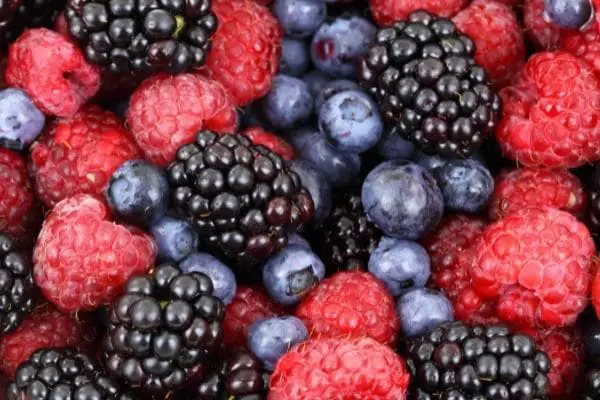
Anthocyanins are a subclass of Bio-Flavanoids that have been shown to reduce DNA damage, and reduce cognitive decline. It is not clear if this is due to a direct effect on neurons or because they reduce inflammation overall. But, eating blueberries or other dark skinned berries with anthocyanins is definitely good for us.
The recommended amount is 6-10mg of extract per day, or 60-120g of fresh blueberries per day.
Buy Anthocyacin Supplement
Huberman Lab Brain Supplements: Glutamine
And the last supplement option Dr. Huberman discussed was glutamine, an amino acid that can reduce the negative effects on cognition seen with oxygen deprivation.
Glutamine can also help with weight loss. This is because we have glutamine sensing neurons in our gut which give signals to our body to feel full. It also reduces sugar cravings.
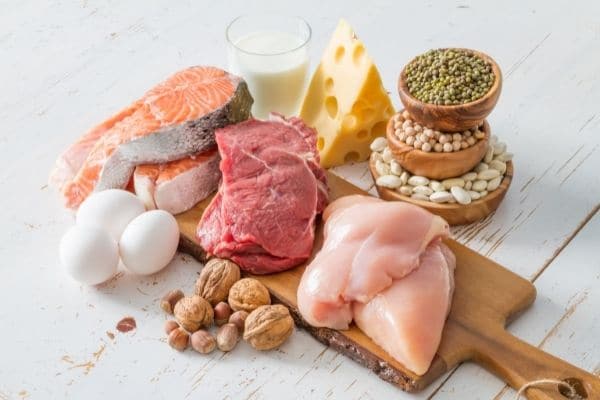
Glutamine is found in cottage cheese, beef, chicken, fish, dairy and eggs, beans, cabbage, spinach etc.
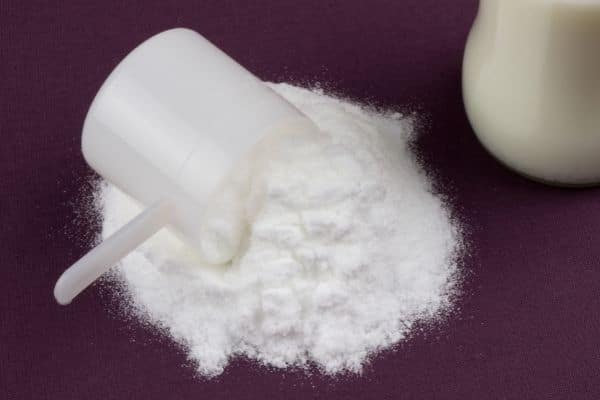
Dr. Huberman admits he has been supplementing with glutamine for years, because of glutamine’s immune enhancing effects. Now he continues with this habit because of glutamine’s cognitive enhancing effects.
The recommended amount of glutamine is 1-10mg/day.
And you can use the code VASTMIND to get a discount of 15% off your order at Momentous.
Or
Summary: The Huberman Lab Brain Health Supplements
So to summarize, here are Dr. Andrew Huberman’s recommended supplements that can help with brain function.
Remember, each person is different so you need to look into whether this is appropriate for you. Also, your diet will affect how much you may want to supplement.
- Hydration with electrolyte tabs or salt
- Omega-3: EPA from Fish Oil, 1.5-3g/day
- Phosphatidylserine, 300mg/day
- Choline, from diet or 300mg of alpha-GPC/day
- Creatine, 5g/day
- Anthocyanins – 6-10mg extract or 60-120g of blueberries/day
- Glutamine, 1-10mg/day
The amount they will help is based on how well the brain was working to start with.
You can also get The Huberman Lab complete product bundle at Momentous:
Use the code VASTMIND to get 15% off your order at Momentous.
Huberman Lab Brain Supplements: How I Changed My Breakfast Routine
So, after listening to this podcast and doing a little more reading I decided to start supplementing with some of these compounds. I had not heard of creatine or glutamine for brain health previously, so that was a big surprise.
It took me a little experimentation, particularly with creatine to figure out the best way to take it.
As Dr. Huberman says, this is what I decided to do for myself. Figure out what is right for you because everyone is different. Consult with your physician.
For breakfast I have a small bowl of greek yogurt with lemon flavoured fish oil, liquid vitamin D and the glutamine. I mix that up until it is a nice consistency. Then I add berries and chopped up nuts. With the lemon flavour, it all tastes pretty good.
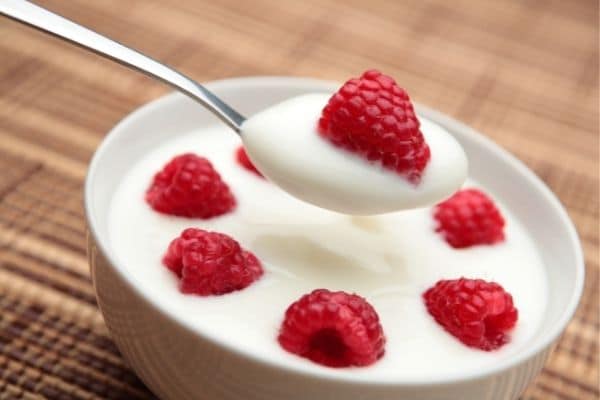
I also drink a glass of Athletic Greens in the morning, and now I add some salt and take a magnesium pill. I also tried adding the glutamine to the Athletic Greens, but it made it really unpalatable, so I do not recommend this.
(You can read my Athletic Greens review here)
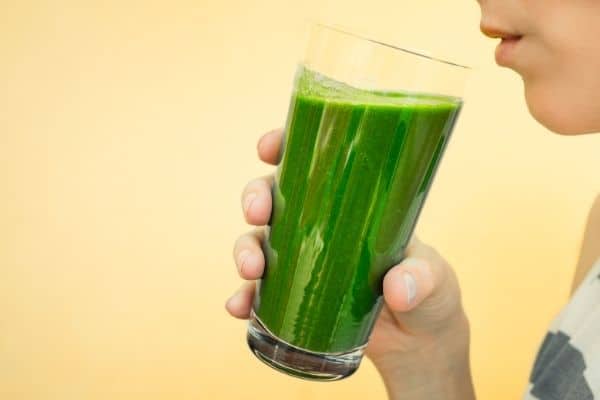
For the creatine I tried mixing it in with the yogourt, but creatine is crystalline so it was very crunchy. Then I tried mixing it in with the Athletic Greens, but again it really is hard to dissolve. The only way I got it to dissolve was in a hot cup of tea but if the tea cooled it precipitated out.
In the end I found the easiest thing to do is to actually just put a dry scoop of creatine in your mouth and and then drink it down with a beverage. Make sure you keep drinking enough of the beverage to dilute the creatine in your stomach.
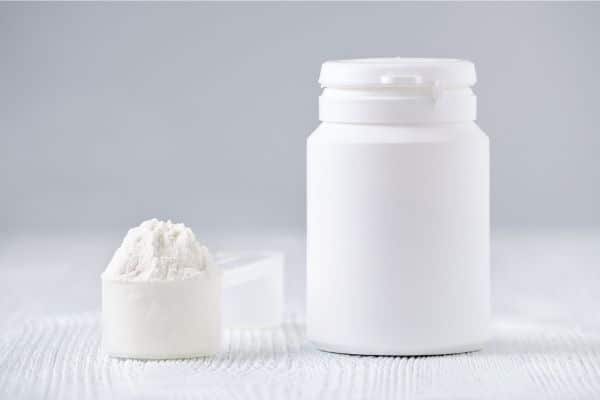
To avoid having to deal with the big container each day, I put some in a tall pill bottle and just guesstimate how much I take each day. Not exactly pretty but it gets the job done.
I have also tried alpha-GPC and phosphatidylserine in pill form but I don’t take those every day.

Well, there you are. Some suggestions on supplements for brain health from a neuroscientist and my tricks for a way to take them.
Dr Huberman also recommends Magnesium L-Threonate a formulation of magnesium designed to get into the brain, and it is a component of his Huberman Lab recommended ‘Sleep Cocktail’ if you have insomnia.
Use the code VASTMIND to get 15% off your order at Momentous.
